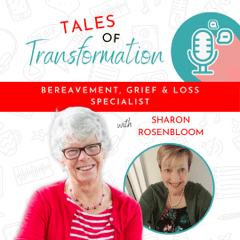-
9AM - 5PM
Embracing Reflection and Overcoming Loneliness: The 4th Stage of Grief
Discover the importance of reflection and coping with loneliness during the fourth stage of grief.

In our journey through the different stages of grief, we reach the fourth stage: depression, reflection, and loneliness. This stage can be marked by deep sadness, a sense of isolation, and a need for introspection. In this article, we will discuss the importance of reflection and provide strategies for coping with feelings of loneliness during this stage of the grieving process..
Understanding Reflection and Loneliness
During the fourth stage of grief, individuals may experience profound sadness and a sense of loneliness. This can be a time of introspection, where we reflect on our memories and experiences with the person or thing that we have lost. While reflection can be both comforting and painful, it is an essential part of the healing process.
Coping Strategies for Reflection and Loneliness
- Create a safe space for reflection: Set aside time and space where you can comfortably engage in reflection. This could be a quiet room in your home or a serene outdoor space. Ensure that you feel at ease and undisturbed during this time.
- Journal your thoughts and feelings: Writing down your thoughts, memories, and emotions can be a helpful way to process your grief. Journaling can also provide a safe and private space for self-expression and reflection.
- Connect with others who are grieving: Reach out to support groups, friends, or family members who have experienced a similar loss. Sharing your feelings and experiences with others can help to alleviate feelings of loneliness and foster a sense of connection.
- Engage in activities that bring comfort: Find activities that provide solace and help you feel connected to the person or thing you have lost. This could include visiting places that hold special memories, listening to music that reminds you of your loved one, or engaging in hobbies you once shared.
- Practice self-care: Ensure that you are taking care of your physical, emotional, and mental well-being during this stage of grief. This may include getting enough sleep, eating well, exercising, and engaging in relaxation techniques such as meditation or deep breathing exercises.
- Seek professional support: If feelings of loneliness and depression become overwhelming, it may be helpful to seek the guidance of a professional grief counsellor or therapist. They can provide additional support and resources to help you navigate this stage of the grieving process.
Moving Forward
Embracing reflection and overcoming loneliness during the fourth stage of grief is essential for healing and growth. By utilising the coping strategies outlined in this article, you can begin to process your emotions and find comfort in the memories of your loved one.
In the upcoming articles, we will continue to explore each stage of the grief process, offering compassionate guidance and support for those experiencing loss. Remember, there is help available, and you do not have to face this journey alone.
If you’re in need of someone to talk to, don’t hesitate to reach out and contact me.



